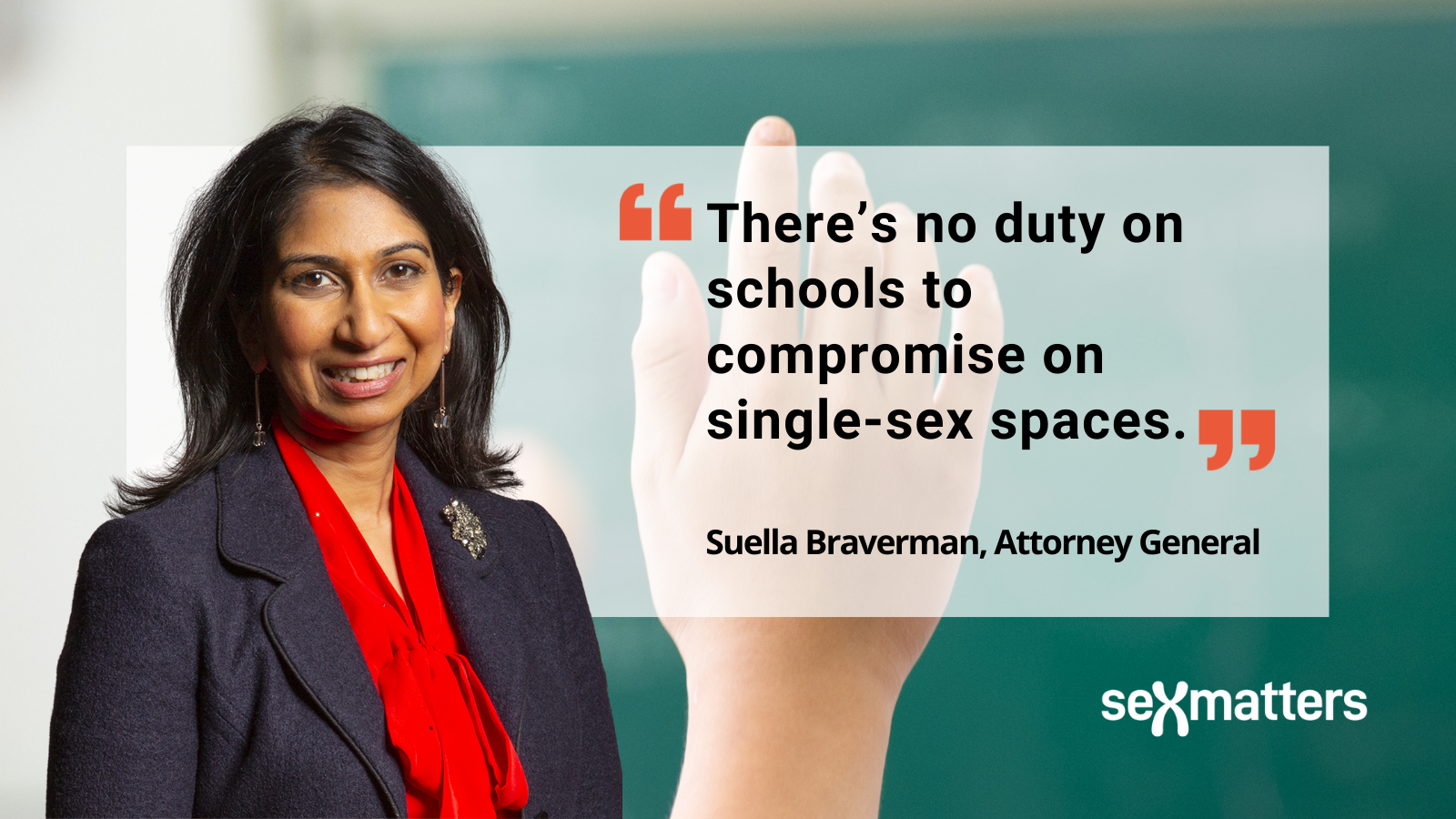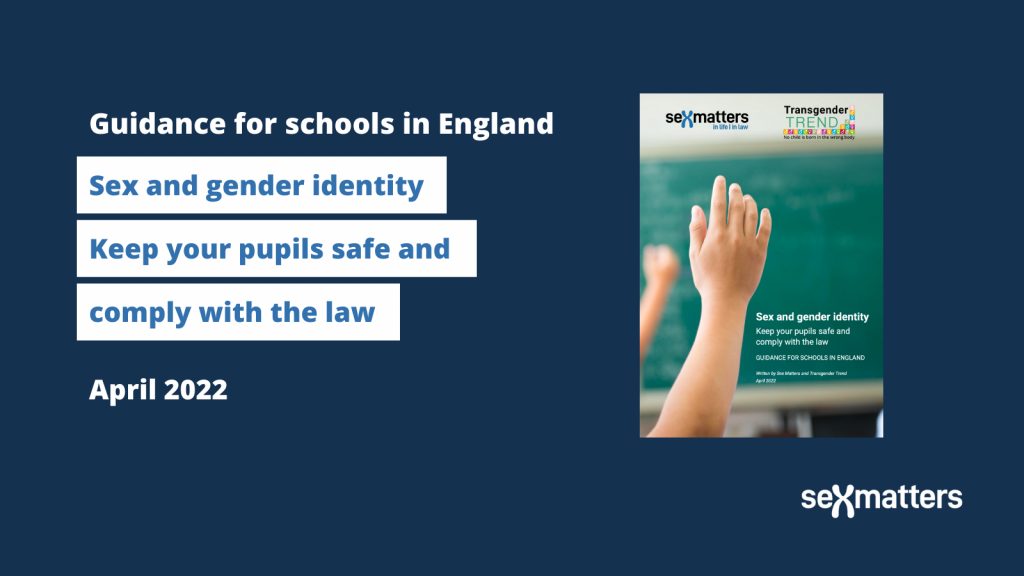Attorney General clarifies the law for schools

In an interview with the Times, Suella Braverman said schools should treat children according to their sex, not their self-identified gender.
Sex Matters welcomes Braverman’s comments, which align with Sex Matters’ guidance. The Department for Education is currently drawing up new guidance for schools.
Braverman said:
“Under-18s cannot get a gender recognition certificate, under-18s cannot legally change sex. So again in the context of schools I think it’s even clearer actually. A male child who says in a school that they are a trans girl, that they want to be female, is legally still a boy or a male. And they can be treated as such under the law. And schools have a right to treat them as such under the law.”
On whether male pupils who identify as girls should be able to use girls’ lavatories or changing facilities, she said:
“I would say to the school that they don’t have to and that they shouldn’t. They shouldn’t allow that child to go into girls’ toilets.”

Maya Forstater, Executive Director of Sex Matters, said:
“The Attorney General’s statements are clear. This is what schools need. They must tell the truth to parents and students, and not confuse them or encourage them to believe that it is possible to change sex. Children with gender distress should not be bullied or excluded, but they cannot be allowed to use opposite-sex facilities.”
Stop hiding gender distress from parents
We are pleased to see the Attorney General raise the concern that schools are keeping children’s cross-sex identification secret from parents.
This reflects Sex Matters’ YouGov survey, which found that:
- almost a fifth of secondary-school teachers say that their schools would, as a matter of course, not inform parents if their child adopted a cross-sex identification at school
- a third say they would do so only with the child’s express permission
- only 5% say they would proactively inform parents.
As Dr Hilary Cass has said, social transition is a significant intervention. A child’s trans identification may have been triggered by other problems, such as depression, anxiety or bullying, that can only be managed in co-operation with parents.
Braverman also stated that the Girls’ Day School Trust was right not to admit boys who identify as girls, protecting their single-sex status. For more on the GDST’s policy and the law, read our briefing: Clear rules and single sex schools.

No duty to compromise on single-sex spaces
Braverman said:
“There’s no duty on schools to compromise on single-sex spaces. From a safeguarding point of view you can argue that there is a duty on schools to preserve single-sex spaces, and ensure spaces are for biological females.”
Sex Matters wholeheartedly agrees.
